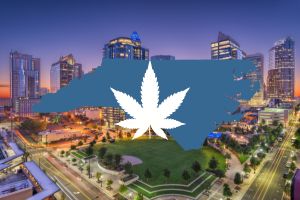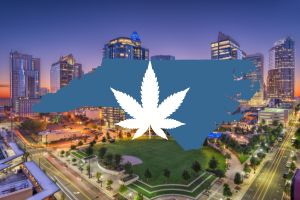Is Hemp Legal in North Carolina?
Posted by Tweedle Farms on May 16th 2022

Understanding the Legality of Hemp in North Carolina: A Comprehensive Guide
In recent years, the landscape of cannabis law has experienced significant shifts across the United States, with various states adopting unique stances on the matter. North Carolina, a state known for its rich agricultural history, is no exception. This article delves into the complexities surrounding the legality of hemp, including hemp flower, CBD flower, and THCA flower, within North Carolina's jurisdiction. It aims to provide clarity for both industry stakeholders and consumers navigating this evolving legal environment.
The Legal Status of Hemp in North Carolina
The passage of the 2018 Farm Bill marked a pivotal moment in the history of cannabis legislation in the United States. It distinguished hemp from its psychoactive counterpart, marijuana, by setting a threshold of 0.3% Delta-9 THC (tetrahydrocannabinol) concentration on a dry weight basis. Hemp was removed from the Controlled Substances Act, effectively legalizing it at the federal level.
North Carolina aligned its state laws with federal regulations through the North Carolina Hemp Farming Act. This legislation recognizes hemp as an agricultural commodity and allows for the cultivation, processing, and sale of hemp products, provided they adhere to the THC concentration limit. Consequently, hemp-derived products, including hemp flower, have become increasingly popular in the state's market.
Hemp Flower, CBD Flower, CBG Flower, and THCA Flower
To fully understand the legal nuances, it's essential to differentiate between hemp flower, CBD flower, CBG flower, and THCA flower. Hemp flower refers to the bud of the hemp plant, which is low in THC and high in cannabidiol (CBD), a non-psychoactive compound. CBD flower is essentially hemp flower selectively bred to contain even higher concentrations of CBD, offering various therapeutic benefits without the high associated with THC. Finally, CBG flower is a type of hemp that has been bred to be especially high in cannabigerol (CBG).
THCA flower, on the other hand, poses a more complex legal situation. Tetrahydrocannabinolic acid (THCA) is a non-psychoactive precursor to THC found in raw and live cannabis. While THCA itself is not psychoactive, it can convert to THC when exposed to heat, a process known as decarboxylation.
Regulatory Landscape for Industry Stakeholders
For industry stakeholders, including farmers, processors, and retailers, navigating the legal intricacies of the hemp industry is crucial. The North Carolina Department of Agriculture and Consumer Services (NCDA&CS) oversees the state's hemp program, requiring participants to obtain licenses and comply with testing and reporting requirements.
One of the primary concerns for stakeholders is ensuring that their hemp products, including hemp and CBD flowers, remain within the legal THC threshold. Rigorous testing protocols are in place to verify THC concentrations, and failure to comply can result in severe penalties, including the destruction of crops and potential legal action.
Moreover, the evolving regulatory landscape demands constant vigilance. For instance, the debate around smokable CBD flower, which resembles marijuana in appearance and odor, has led to legal ambiguities and discussions about potential bans or stricter regulations. Stakeholders must stay informed about legislative changes to adapt their business practices accordingly.
Consumer Considerations
For consumers, the legality of hemp-derived products like hemp flower, pre rolls, CBD gummies, or CBD topicals offers exciting opportunities for wellness and therapeutic use. However, it also requires a level of responsibility and awareness. Consumers should ensure that the products they purchase are compliant with state and federal laws, which means they should be sourced from reputable vendors who provide transparent product testing information.
The ambiguous status of THCA flower necessitates even greater caution. Consumers interested in products containing THCA should be aware of the legal risks involved, considering the potential for these products to be classified similarly to THC-rich cannabis under certain conditions.
Future Outlook and Recommendations
As the hemp industry continues to evolve, both North Carolina and federal legislation are likely to undergo further changes. Industry stakeholders should actively engage in advocacy and dialogue with regulatory bodies to shape policies that support sustainable industry growth while ensuring public safety.
For consumers, the key to safely navigating the hemp market lies in education and due diligence. Verifying product sources, understanding the legal distinctions between different types of hemp flowers, and staying informed about legislative updates are essential steps.
Conclusion
The legality of hemp in North Carolina, encompassing the wide variety of available hemp-derived products, is a multifaceted issue influenced by federal and state laws, regulatory frameworks, and the ongoing development of the hemp industry. Both industry stakeholders and consumers must navigate this complex landscape with caution and awareness, ensuring compliance with current laws while advocating for reasonable regulations that reflect the agricultural and therapeutic potential of hemp.
As North Carolina continues to adapt its policies to the dynamic nature of hemp legislation, the future of the industry remains promising, albeit challenging. Through collaborative efforts among legislators, industry participants, and consumers, it is possible to foster a regulatory environment that balances economic opportunity with public health and safety, ensuring the sustainable growth of the hemp industry in the state.



